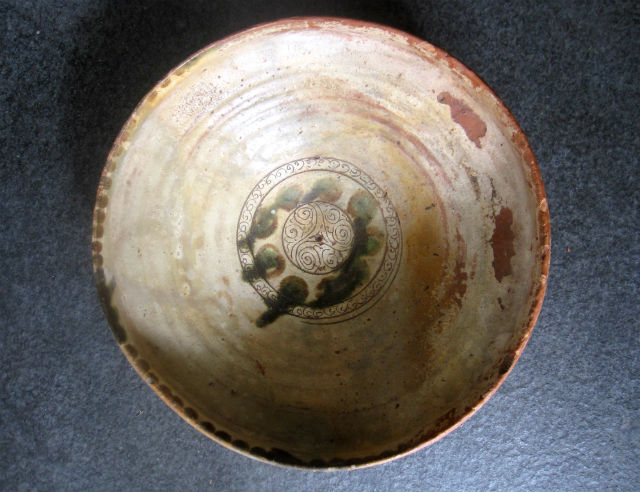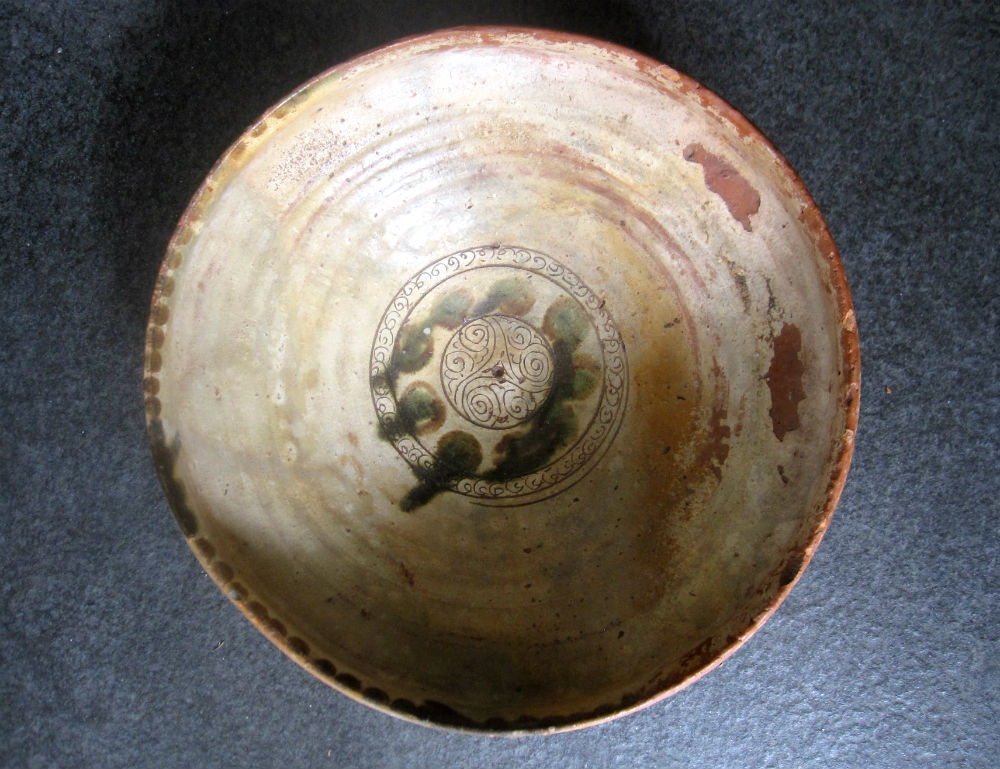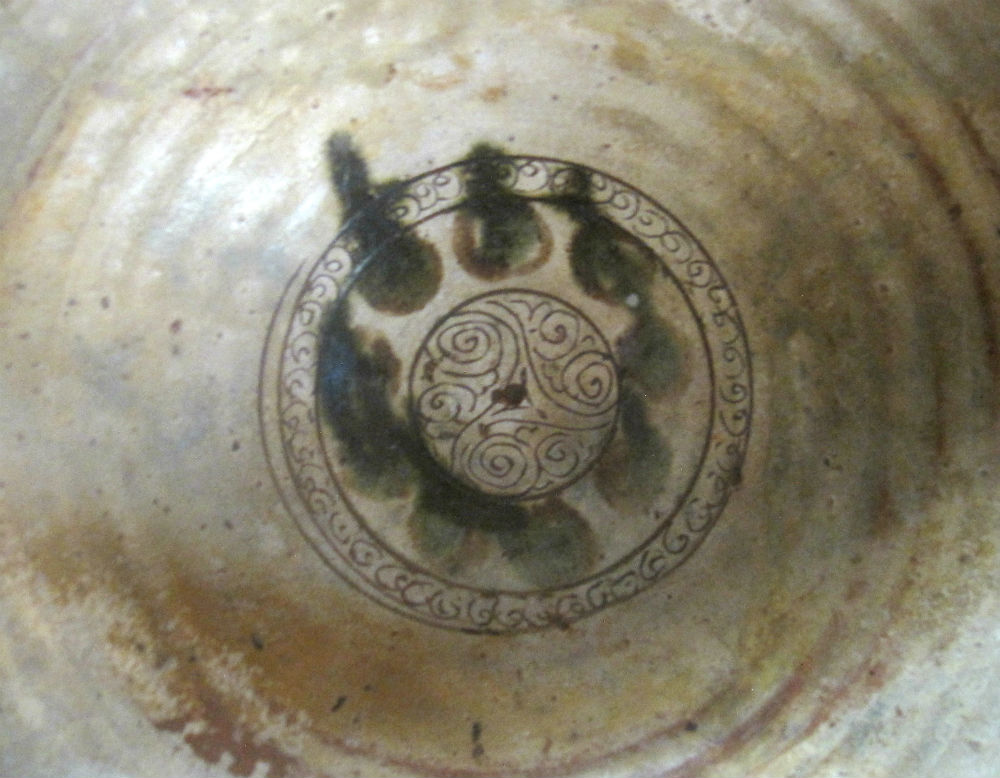Description
A Byzantine ceramic bowl, featuring a rolled rim and a shouldered interior.
The bowl’s internal surface is engraved with a central medallion, surrounded
by a trefoil pattern and chevron pattern border. Green brushstrokes create a
dynamic contrast with the sharp, incised decoration.
Circa 11th–13th Century A D
Diameter: 27 cms; Height: 11 cms
Condition: Complete, a small loss of glaze within the bowl
The technique known as ‘sgraffito’ entailed the ceramic being covered by an overall coating of white slip and a colourless lead glaze. The design was then incised through the white coating to reveal the dark clay beneath. Variants of the sgraffito technique were used extensively across the Byzantine World from the late eleventh century onwards.
The sgraffito technique was Islamic in origin, primarily inspired by precious metalwork. Some Byzantine motifs, such as birds and the Kufic border, resembled sgraffito ware from Iran and Syria. This is not overly surprising, given the geographical extent of international trade in pottery during the Middle Ages: close contact was maintained between Byzantium and the Islamic World.
Pottery workshops specialising in glazed ware for domestic use were located throughout the Byzantine Empire. Designs on household ceramics often imitated those on vessels made of silver or other precious materials.


